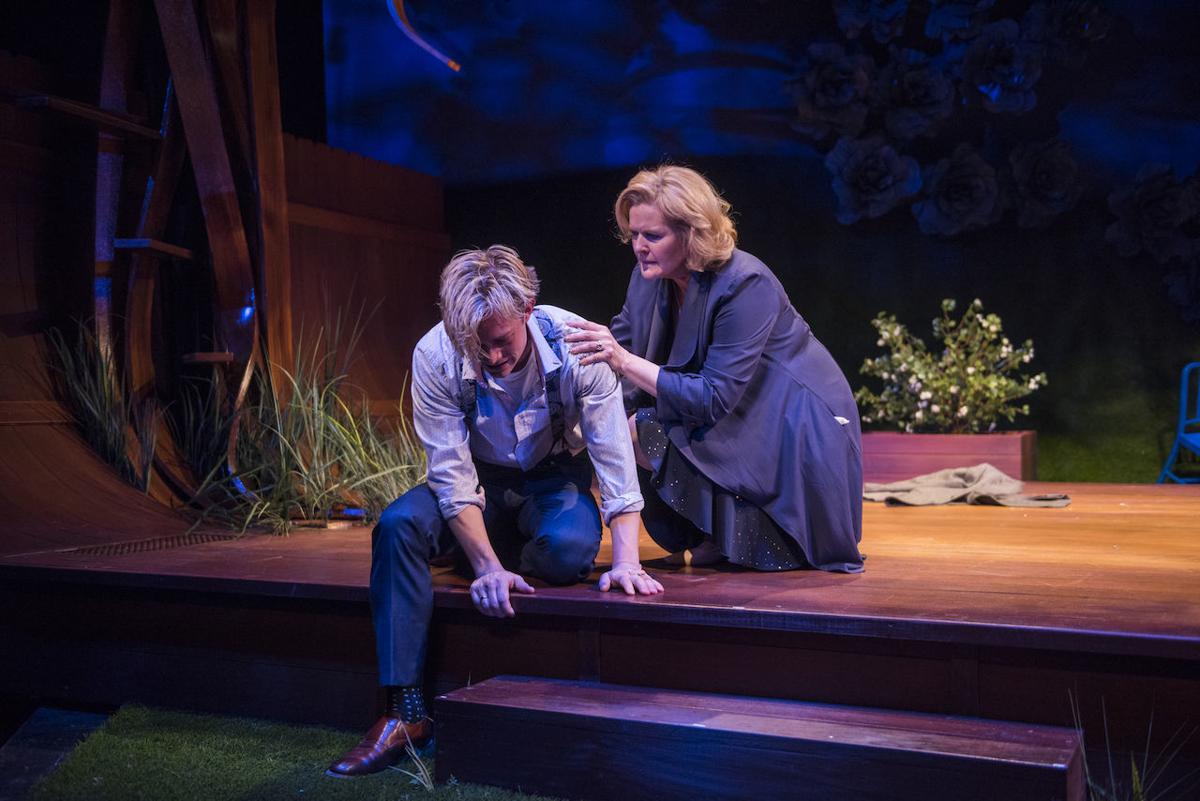This is not an exaggeration:
“Things I Know to Be True,” Arizona Theatre Company’s current offering, is a stunner.
It’s also wrenching, poetic, beautifully acted and deeply felt.
But it all starts with the script. And Australian playwright Andrew Bovell has crafted a piece that rings true, is never sentimental, and wraps itself around you and won’t let go.
“Things” introduces us to the Price family. There’s no real story, only a glimpse into the lives of the parents, Bob and Fran, and their four children.
We’ll all recognize ourselves in at least one of the characters.
Rosie (achingly portrayed by Aubyn Heglie), the baby in the family, is taking a gap year before who knows what? College? A job? She has no idea what she wants to do or who she is. While traveling in Europe, she falls desperately, completely and naively in love. It does not end well. Her opening monologue is thick with the angst and heartbreak and loneliness that few of us escaped at that age.
The oldest boy does know who he is, and it is not Mark, but Mia. He is a she, trapped in a body that shames and frustrates him. He is terrified of what that means and how his parents and siblings will react. Kevin Kanton is a nonbinary actor, which no doubt informed the character Kanton so eloquently and painfully portrayed.
Kelley Faulkner was flawless as Pip, a daughter and mother of two trapped in a loveless marriage, as was Zach Fifer who played Ben, the son who has lost his moral center.
Jordan Baker and Bill Geisslinger beautifully and honestly portrayed the working class parents who love their children fiercely, are confused and angered by them as much as they want to hold and protect them. They are flawed characters, but deeply human and passionate.
Director Mark Clements also helmed the American premiere of this play at the Milwaukee Repertory Theatre earlier this year. He changed the original location from Australia to the American Midwest, and the move makes perfect sense.
This co-production has the same cast, which is perhaps why the actors all seem so rooted in the characters. The result is a sense that we are not watching a play, but real life. We ache for them, love them, hate them and are deeply touched by them.
This is a gorgeously choreographed piece (Julia Rhoads is the stage movement director). As the family sways together, breaks apart, comes back together, we see the struggles inherent in a family, and the pull that a familial bond can have.
Scott Davis’ backyard garden set, with rose bushes and a tree with branches that sweep above half the stage, told the story without ever intruding on it, and Jesse Klug’s pristine lighting underscored the drama, humor and heartache that rule this family.
Some may think the play ends on a contrived, pull-the-heartstrings note, but it didn’t come across that way at the April 26 opening night performance. And the audience, which sat silent for many seconds after curtain before jumping to its feet, certainly found no contrivance.
There were plenty of tears. But there was also this: animated discussions about the characters and the slice-of-life play swirled around the theater both at intermission and as the audience filtered out. And, no doubt, those discussions continued long after.
And that’s what stunning theater can do: it crawls in deep, sits with you, illuminates, makes you think, talk and, especially, feel.





